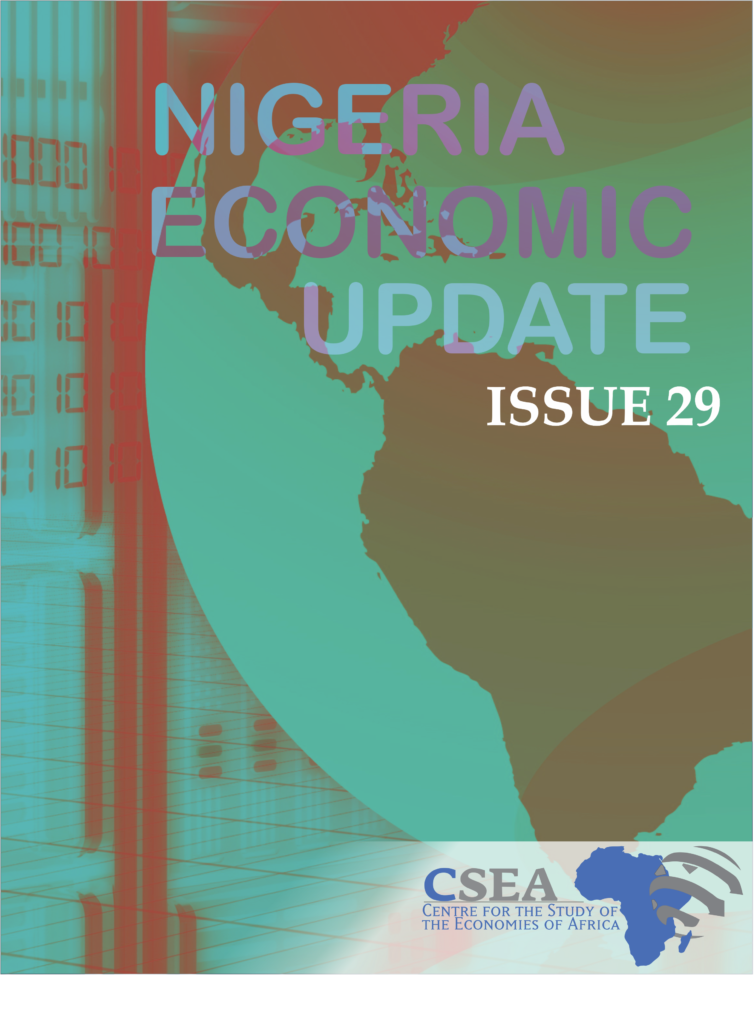The IMF retained its 2.1 percent forecast of Nigeria’s GDP growth rate for 2018, while increasing the 2019 projected GDP growth rate to 2.3 percent1, from 1.9 percent projected earlier. The stated review is at the backdrop of continued increases in commodity prices in the long term, for which crude oil is the benchmark for Nigeria. Outlook on crude oil price and production is expected to maintain upward improvements in the near term. However, the Nigerian government pegs its own forecasted growth rate at 3.5 percent in 2018 – higher than figures predicted by the IMF, although premised around the same driving factors. In order to achieve a 3.5 percent GDP growth rate, a more effective implementation of the bold initiatives in this administration’s economic plan – the Economic Recovery and Growth Plan – is critical particularly in the agriculture and manufacturing sectors.
Macroeconomic Report & Economic Updates

August 14, 2018
Nigeria Economic Update (Issue 29)
The IMF retained its 2.1 percent forecast of Nigeria’s GDP growth rate for 2018, while increasing the 2019 projected GDP growth rate to 2.3 percent1, from 1.9 percent projected earlier. The stated review is at the backdrop of continued increases in commodity prices in the long term, for which crude oil is the benchmark for […]
Read →
Related
Nigeria Economic Update (Issue 49)
OPEC weekly basket price reduced from $61.14 to $60.73 per barrel (December 1 8, 2017). Similarly, Global oil benchmark crude sold for as low as $61.22 per barrel during the week, down week-on-week by 1.8 percent. Nigerias Bonny light declined slightly by approximately 1 percent to $63.534. The fall in crude prices came after a sharp rise in U.S. inventories of refined fuel, which suggested that actual demand may be weakening5 (the EIA data shows an increase of 8.5 million barrels of stored fuel). Given that crude oil revenue remains critical to Nigerias budget performance, investments aimed at improving growth and competitiveness of other key sectors is essential to minimize distortions on budgetary expenditure.
Nigeria Economic Update (Issue 25)
Naira appreciated in the week under review. At the parallel market, naira gained 0.54 percent to exchange at N368/$ on June 23, 20175. This is at the backdrop of injections into the forex market by the CBN to the tune of $195 million at the beginning of the review week, to meet various forex demands. This is amid a slight week-on-week increase in the external reserves (by 0.1 percent to $30.23 billion). Despite the recent naira appreciation, the long-term prospects seem bleak given that the ongoing intervention that seeks to stabilize naira by depleting reserves is unsustainable.
